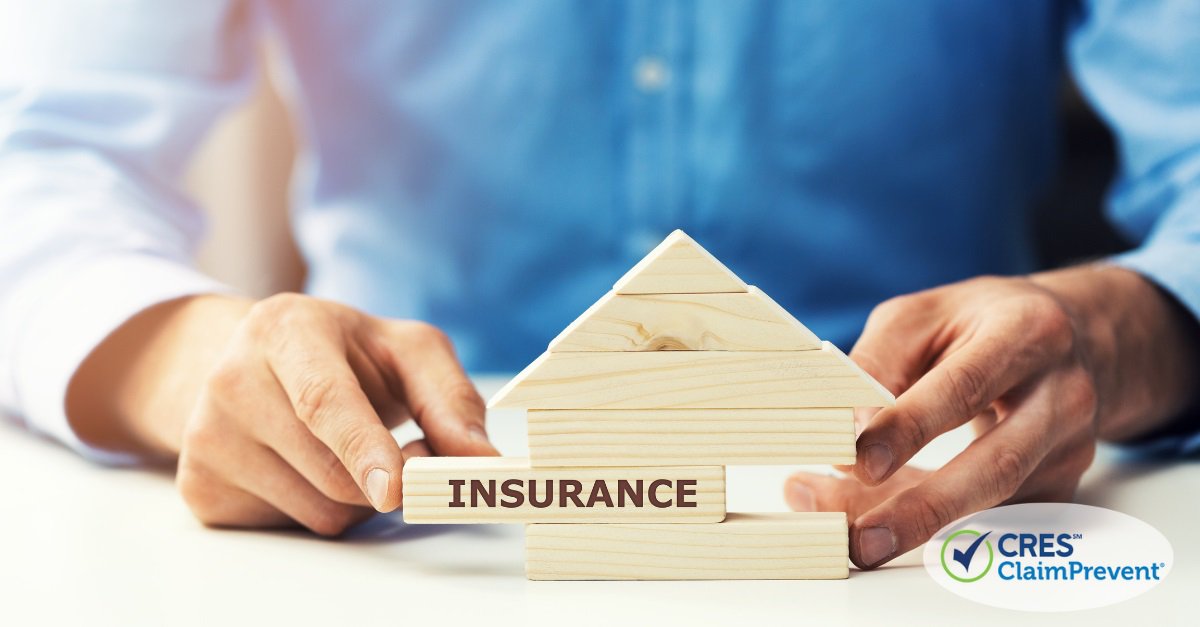Insurance is critical for all real estate professionals. For appraisers, you want to be confident that your insurance covers the exact risks you face in your appraisal business.
What Can Go Wrong with a Real Estate Appraisal?
Common reasons for lawsuits against appraisers include:
Claims of inaccurate appraisals
Some property owners may accuse an appraiser of undervaluing their home. Here’s an example…
A seller obtains an appraisal and the property is valued at $600,000. The home goes on the market and sells instantly. Soon after, another appraiser who is a friend of a friend tells the seller they think their home was underpriced and that’s why it sold immediately. The seller may then try to sue the appraiser to obtain damages to make up for the lost sale income.
Appraising a property too high is also a problem. For example, a property may stagnate on the real estate market because of a high and unrealistic price. The long time on the market could cause unnecessary financial or other losses to the seller.
Appraisals are only a market value estimate at a point in time. But, markets rise and fall all the time. An appraisal today may be incorrect next month if market conditions change significantly. Nonetheless, lawsuits do happen because of accusations about inaccurate appraisals, and they can be costly to fight in court regardless of the outcome.
Errors and oversights
All humans make mistakes. An appraiser may inadvertently make an error that has a negative impact on a client or another person. Errors and oversights like this are not intentional, but can still lead to costly lawsuits.
Errors in property measurements, inaccurate property feature lists or missing an obvious maintenance issue upon inspection are all common reasons for lawsuits.
Missed deadlines
With the fast-moving real estate market, getting appraisals done on time is essential. But, sometimes things outside of your control may occur which means a deadline is missed. If your appraisal’s tardiness leads to increased costs or disruption to someone, you could be sued. For example, if a late appraisal means a property settlement falls through.
Damage to a client’s property during the appraisal process
If an appraiser damages the property or contents of the property during a site inspection, the seller may sue for damages. The damage does not need to be intentional — it can be purely accidental.
Appraiser Insurance Requirements
Real Estate Appraisers need to have Errors and Omissions Insurance. A tailored insurance policy specifically for appraisers is recommended to ensure the most effective coverage.
CRES offers E&O insurance specifically for appraisers specializing in residential properties.
- We now have access to more options for appraisers than just about anyone else, because we’re part of one of the largest insurance brokers in the world.
- We’ll do the shopping for you (with access to resources few others have) to find the best protection at the best price.
With CRES Appraiser E&O + ClaimPrevent®, you’ll have access to our expert team of legal professionals 7 days a week. This means you can address any potential legal issues BEFORE they become lawsuits.
Appraisers also need to have General Liability Insurance. The CRES team can combine this into a Business Owner’s Policy that will cover your specific business risks. Our Business Owner’s Policy combines many essential types of coverage into one convenient package, including: buildings and property coverage, loss of business income, equipment breakdown and personal and advertising injury, and medical payments for injuries to others on a property you own or rent.
Appraisers who have W-2 employees will also need to have Workers Compensation Insurance, and CRES can help with that too.
Additionally, we recommend Cyber Liability Insurance for all real estate professionals. Regular E&O Insurance does not cover cyber crime.
What Isn’t Covered By Insurance
Even with insurance, appraisers will not be covered for any illegal activities or where they have intentionally done something wrong. For example, an appraiser would not be covered if they intentionally overvalued or undervalued a property for a family member and were sued because of it.
As an appraiser, you should read your insurance policy documents thoroughly so you know exactly what’s covered and what’s not.
Let Us Shop For You to Find the Best Options
Put your CRES team to work to find you the best insurance options. Call us at 800-880-2747 for a confidential discussion.
